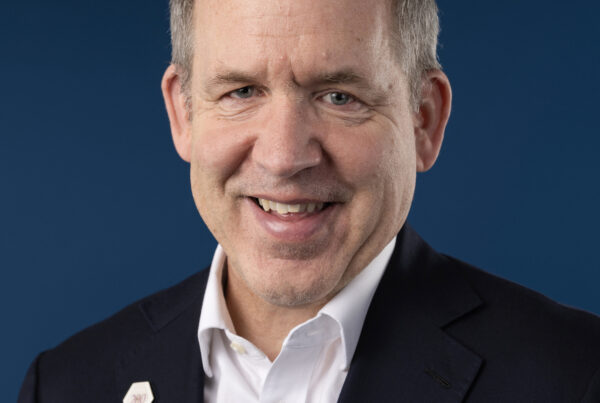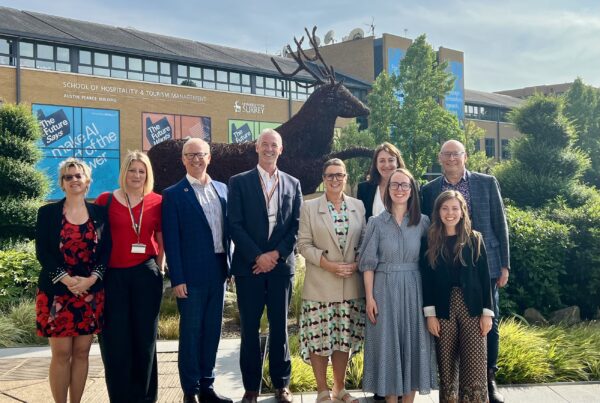Kiki: is this a time of danger or opportunity?
There is a widely held view among UK HE leaders and commentators that the current funding system and its challenges is leading to the possibility of imminent crisis. With more than 50% of UK universities in sustained deficit and no prospect of per capita teaching funding levels being prevented from getting worse, the hope that increased international student fee income would save the day is receding. Current UK policy changes are coinciding with international student numbers in the UK being in decline. This scenario is replicated with less intensity in other countries and the fate of global universities is being painted as bleak.
There is a Japanese expression named Kiki that refers to challenging scenarios uses written kanjis of both danger and opportunity. Both are possible to experience at the same time and Japanese leaders are admired for recognising the need to respond to danger whilst striving for a bold embracing of any opportunity.
Sensitivity, ethics and wisdom serve leaders well in both aspects of a Kiki leadership response to challenge. The emergence 14 months ago of widespread generative AI led some leaders, institutions, and regulators to see crisis and only respond with a defensive mindset. It was eye-opening to learn that Arizona State University recently responded by announcing the first strategic partnership of a university with OpenAI. This partnership liberates its staff and students to embrace, experiment and innovate with the technology seeing opportunity.
Loughborough University also made recent news with a Guardian story of its use of avatars and specialised AI technologies in replicating lectures from global experts, and from subject leaders from the design world. In both instances the rational approach to exploring opportunity among crisis requires caution and determination in equal measure, with consideration of ethics and viability to be balanced with boldness and experimentation.
HE leaders are typically discipline experts with roots in their field that they apply in their wider institution. They lead what have started as very diverse universities with different histories and the opportunity to create quite distinct missions. Loughborough has a history of being industry-linked and sports-specialised. It now has a strategy focussed on creating better futures together with a strong focus on inter-disciplinarity and industry links.
Partnerships are key to the Loughborough strategy including with technology providers and EdTech companies. There are many opportunities for UK and other global universities to do much more of that in a similar way that ASU’s latest partnership illustrates. There is a strong EdTech sector well placed to support an opportunistic approach. Forging strong partnerships with EdTech companies and others can be one route to differentiation that is not well measured by rankings but still worthwhile and an opportunity in the current challenging circumstances.
All universities would do well, as Loughborough has, to see itself as more than its rank. There is demonstrable evidence that global university rankings can hinder differentiation in mission and inhibit bold leadership. The boldest leadership of all might be to not be so dependent on them and to tell the university’s story that lies beyond them.
There is a need and will to see greater variability and specialisation among future universities and among their leaders to reflect that. The funding landscape and market demand, as well as policy settings, may well see the current rush to ubiquitous, and comprehensive research at scale in all universities replaced by a more nuanced landscape.
In the case of Loughborough, we have a university starting from a position of distinctiveness in subject specialisation and partnership approaches being now led by a noted AI computer scientist with a strong research pedigree. Will we see a VC in the future having their role replaced by AI? It appears unlikely in our lifetimes because of the need for social interaction in the role, for ethical judgements beyond logical ones, and because of the need to overcome what we would now see as the limitations in hallucinations to overcome and deal with the great complexity of universities and their context.
We may need more leaders that can practice the art of Kiki. It would be easy at the start of 2024 for leaders to be overcome by the sense of crisis and to be blinded from seeing opportunity. Is the all-staff email to start the year in your university a trigger from leadership that will spiral a fragile culture and mood downwards? What is most needed is a response that stirs an ethical and rational approach to seeking opportunities.Bold leadership is certainly needed in all global universities and HE providers.
It is a time to recognise that a crisis does exist in many funding systems. Policy changes appear unlikely to be about to save the day in most countries whatever stage and colour in the political cycle they may be in. But a leader seeking bold opportunity and distinctiveness in institutional mission will be describing and aiming for its institution to be more than its rank. It may seek to use that narrative, strategy, and vision as a means of differentiation.
This is a time when we least need our Vice Chancellors and Presidents to be formulaic and replaceable by AI. We do need to see boldness and distinction. I reflected on all of these matters together on the episode of the HEDx podcast you can access here with Andrea Burrows, Managing Director of OES UK and Professor Nick Jennings, Vice Chancellor and President of Loughborough University.
First published in Campus Review on 31st January 2024.









